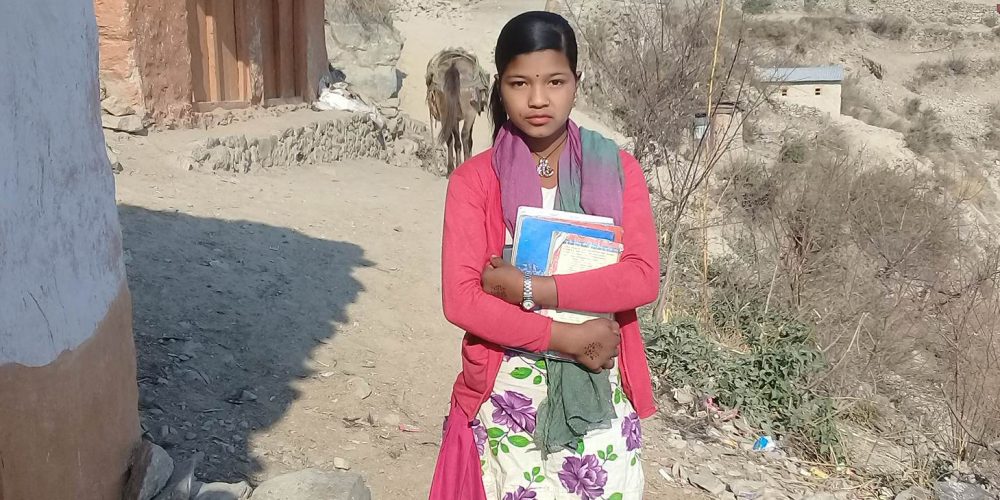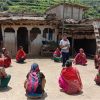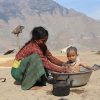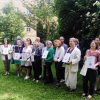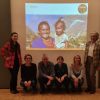Just before the renewed lockdown in Nepal from 1st May, PHASE Nepal was able to conduct Girls’ Empowerment Workshops in Bichhya (Bajura). These workshops aim to improve the educational and life chances of girls in these extremely remote villages and raise awareness for the importance of education, women’s rights, protection from violence, and health and hygiene, and career choices.
For part of the workshop programme, boys are also included in order to increase their sensibility for gender issues.
Here we would like to let the participants speak for themselves:
Bimala T. – 14 years, female:
“I attended the two weeks Girls Empowerment Programme that PHASE offered in our school. All sessions were essential and the facilitator was extremely supportive. It was easy for me to ask whenever I didn’t understand something.
Among the sessions the one I loved most was the one called “How to follow my dream”. I shared that I wanted to become a teacher, and the facilitator gave me proper guidance on how I can achieve my dream. In that session, I understood that for my dream to come true I need to continue my education.
In my community, for the most part, we are not encouraged to study. But I want to continue my studies and be an educator to encourage other girls to study.
I am glad that my parents support me in my education – although they have to move with the seasons, I can stay with my brothers to attend my classes.”
Ashmita T. – 14 years, female:
“In the 14 days sessions I learned that if girls and boys are given equal opportunities, we girls are able to support our parents just like boys. Discrimination is what is pulling us behind. I have understood that girls and boys should be treated equally.
As my mother is ill very often, I want to be an able daughter and take good care of her. I want to grow up as an able person and inspire others with my actions.
This workshop has taught me that child marriage and gender discrimination are illegal. Now I am watchful to avoid any child marriage around me.”
Chhabindra O. – 12 years, male:
“When I heard that there was also a session for boys I wondered what there might be for us.
With the sessions, I got a clear understanding of the physical changes to expect as a teenager. My questions, for instance what is going to happen to my, how will my body and behaviour change, were answered. I am glad I took part in these sessions. Now I feel confident about myself.”
Sabin R. – 14 years, male:
“Life is challenging here. I have seen a few of my friends marry early. I used to think it was bad for the girls because it was difficult for them in their new home. But after the workshop, I understood how it is challenging for boys as well. I know now marriage comes with serious responsibilities, it is difficult to follow our dreams. Early marriage is harmful to both genders in mental and physical ways.
These sessions have helped me in some other ways, too. The topics we discussed are on our minds frequently, but we don’t talk about them. So now I feel sorted and motivated. Thanks to PHASE for bringing these sessions to our place.”
Kamal R. – 13 years, male:
“I returned to the village after a long lockdown due to COVID. My father is a teacher and my mother looks after our farmlands. I have a sister and an elder brother who studies in Kathmandu.
I am glad I got the opportunity to take the Girls Empowerment sessions even during the COVID pandemic. I learned essential things about making decisions, like understanding details when planning to work abroad, and about boys trafficking and domestic violence.
From these sessions, I take a feeling that we can direct our lives the way we want. Are decisions are important for our future. I feel confident!
When I grow up I want to work in the government. I want to work for my village in administration. I have been studying seriously to make my dream come true, and my father gives me a lot of guidance.”
Hajari B. – 14 years, female:
“This is my last year in this school. For secondary education, I will have to walk four hours to reach the school. I hope to continue my education.
The PHASE Girls Empowerment Programme has helped me realise that several traditional practices in my village are harmful. For instance, staying at the shed during menstruation, and the restriction on using water and eating healthy food like milk and curd.
As an adult, I want to be a teacher and abolish such practices. These practices are bad for the physical growth and mental health of young girls like us. As an elder sister, I am going to encourage younger girls to speak out against practices that make us feel bad.”
Laxmi S. – 16 years, female:
“I am the eldest daughter in my family. We are a large family, with my parents, four brothers and sisters, and some cousins. In total, we are 10 people in my family.
As I am the eldest daughter in my family, I have lots of chores at home to complete every day before I can leave for school. When there is seasonal work in the fields, I miss my classes, too. But this time, I only missed one single session of the Girls Empowerment Programme.
We belong to the Dalit [so-called “low” caste] community. The workshop made me realise that things that are still everyday practice in my village, like not being allowed to touch water taps, or being scolded for no reason, are illegal. People treat us differently. Now I understand that there are laws for us. I will try my best to make my parents understand that bad behaviour on account of our cast is not acceptable. I hope my friends have understood that this practice is harmful and it will slowly disappear from my village.”

